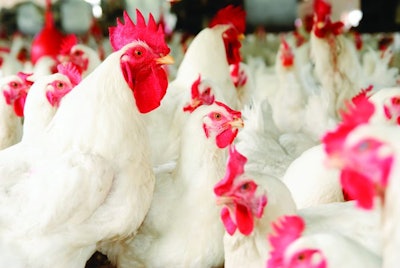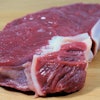
Food businesses are too slow in delivering meaningful farm animal welfare improvements on the ground, despite investment, argues the latest edition of the Business Benchmark on Farm Animal Welfare (BBFAW).
The BBFAW, established 10 years ago as an investor framework for assessing the quality of companies’ practices, processes and performance on farm animal welfare, analyzed 150 global companies for its latest edition, comprising 62 food producers and manufacturers, 53 retailers and wholesalers and 35 restaurant and bars.
Nicky Amos, executive director of the BBFAW, commented: “Around 80% of the 150 companies assessed by BBFAW have strengthened their governance of farm animal welfare through formal policy commitments, objectives and targets. While this provides a strong foundation for action, companies need to demonstrate that their investments in farm animal welfare are delivering positive welfare impacts on the ground."
Noble Foods, Premier retain ranking
The BBFAW places companies into one of six tiers and, this year, only two food manufacturers have managed to gain the highest ranking, Tier 1 Leadership – the U.K.’s largest egg producer Noble Foods, and fellow U.K. company Premier Foods, one of the country’s largest food manufacturers.
Making it into Tier 2, which the BBFAW defines as companies where welfare is integral to business strategy, are: the U.S.’ Cargill, the U.K.’s Cranswick and Brazil’s Marfrig Global Foods.
In total, nine food producers or manufacturers achieved Tier 2 status in the latest report, compared to only six retailers and wholesalers, and only one company in the restaurants and bars category.
Of the 150 companies covered by the benchmark, 134, or 89%, acknowledge farm animal welfare as a business concern, up from the 71% of the 68 companies evaluated in 2012, while 122 companies now have formal policies on farm animal welfare and 119 have published formal objectives and targets.
Reporting and impact
The latest benchmark has given greater focus on companies’ performance, reporting and impact by increasing the weighting of this section from 35% to 45% of the total score available, and ranking companies A-F on 10 performance questions. None of the evaluated companies gained an A rating, but Noble Foods gained a B.
That no company gained an A rating highlights that there remains a stark disconnect between many companies’ animal welfare commitments and the subsequent impact on farm animal welfare in their supply chains, the BBFAW says.
However, given the scale of the changes introduced into the assessment in 2021, the BBFAW highlights the achievements of Premier Foods.
The BBFAW notes that Premier successfully improved on all sections of the benchmark, publishing more detailed objectives on aspects such as avoiding long distance transport, the close confinement of livestock and the provision of environmental enrichments. The company also demonstrated multiple examples of promoting farm animal welfare to consumers.
Premier notes that aligning with programs such as the Better Chicken Commitment set of standards, illustrates how it is making strides towards animal welfare.
Mark Hughes, Premier procurement and central operations director, commented: “To be recognized as Tier 1 by BBFAW is an incredible achievement and is testament to the hard work of all involved. We have made significant progress over the last few years, which wouldn’t be possible without the commitment of our suppliers and farmers.”
With Tier 3, which is defined as having animal welfare established but with more work to be done, are: the U.K.’s 2 Sisters Food Group, Brazil’s BRF and JBS, Thailand’s CP Foods and Perdue Farms of the U.S.
Commenting on the latest edition of the BBFAW, Philip Lymbery, CEO of BBFAW and founding partner and Compassion in World Farming CEO said that while the benchmark was making progress in getting companies to invest in welfare it was disappointing that policy commitments are not delivering meaningful improvements for animals as quickly as they should.

The good, the bad and the ugly in animal welfare
www.WATTAgNet.com/blogs/23-poultry-around-the-world/post/42571

















